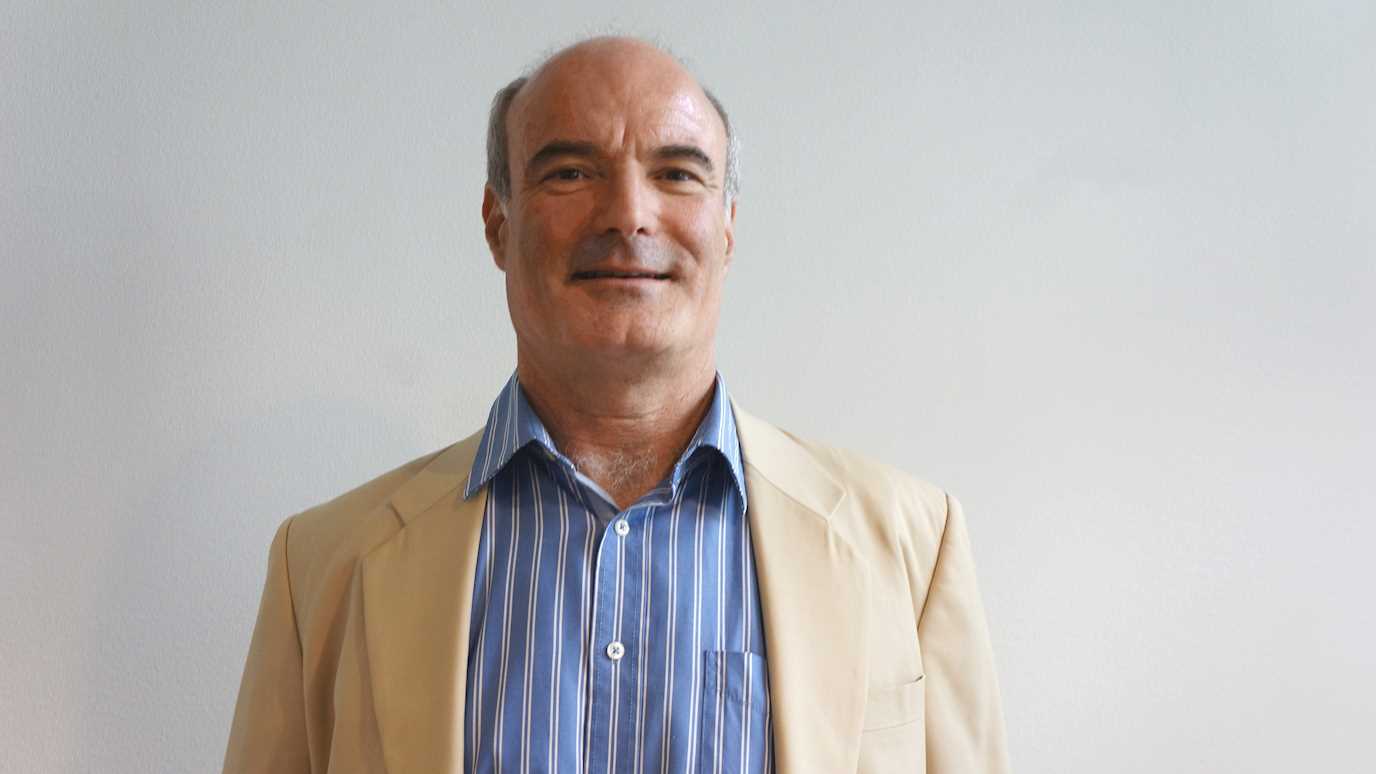As one of the UK’s leading research-intensive universities we are home to some of the world’s foremost authorities in the sciences, arts, business, economics and law. Here we bring together a summary of what our academics have been saying in the media about the Covid-19 pandemic and its impact on communities, the economic market and our urban wildlife.

Do homemade hand sanitisers work?
Professor James McEvoy and Dr Shobana Dissanayeke from the Department of Biological Sciences:
“In our opinion, if you want to make homemade hand sanitiser you should go with a modified version of the first recipe, upping the rubbing alcohol to the WHO-recommended concentration: three-quarters of a cup of isopropanol and a quarter of a cup of aloe vera gel. You could even substitute glycerol for the aloe vera gel. It’s cheaper, but it won’t smell as nice.
“Always follow the safety instructions of whichever alcohol you use and remember this is only for cleaning your hands. Don’t bather in it and definitely don’t drink it!”
Read The Conversation article.
What does the science tell us about wearing face masks?
Dr Jennifer Cole from the Department of Geography:
“It is extremely important that the supplies that are available are prioritised for healthcare workers and for other frontline essential workers such as supermarket checkout staff and public transport operators who having multiple physical interactions with the public each day.”
Read the full article on Sky News.
What are the comparisons between the measures being taken during Covid-19, to those during World War Two?
Dr Emmett Sullivan from the Department of History:
“One of the things you’ve got to bear in mind is the nature of the restrictions [in WW2] were very different at the time. The blackout was probably the greatest requirement of people in the evening, not to have the lights on.
“One of the things about rationing that came in the 1940s that is very different about today, is that the restaurants stayed open and there are some myths about the Blitz and what was happening but if you had the money, you could go out and dine every night – now whether you’d want to do that in London during the Blitz is debateable.
“Now we’re in a situation where pubs have been told to close, the cafes and the restaurants but yes, you can get take away.”
Listen to the full interview on BBC Radio Surrey.
What could the lockdown mean for urban wildlife?
Dr Becky Thomas from the Department of Biological Sciences:
“The way we affect wildlife is complex, and some of the changes that we’ll see are hard to predict, but we can make assumptions. In the UK, hedgehogs are our most popular mammal, but their numbers are in rapid decline. There are many reasons for this, but many die on roads after being hit by cars. With people being asked to only make essential journeys, we are already seeing reduced road traffic. Our spiny friends [hedgehogs] will have just emerged from hibernation and will no doubt be grateful for the change.
“Cities are also noisy places, and the noise affects how different species communicate with each other. Birds have to sing louder and at a higher pitch than their rural counterparts, which affects the perceived quality of their songs. With reduced traffic noise, we could see differences in how bats, birds and other animals communicate, perhaps offering better mating opportunities.”
Read The Conversation article.
What does it mean if the Corporate Debt market collapses?
Professor Jefferson Frank from the Department of Economics:
“Many governments are trying to form a bridge over the lockdown period to allow economic activity to be restored. This involves keeping viable businesses in operation with a furloughed workforce that can quickly re-open when appropriate. One major impediment is that the private corporate debt market is likely to completely implode, which risks pushing a substantial number of businesses over the edge.
“Corporate debt is traded on the open market in several ways: bonds issued directly by companies, and bank loans that are sold on to investors by the bank that agreed them, either individually or in packages of multiple loans. Bonds make up the majority of the market.
“There are three direct measures of the state of this corporate debt market. One involves credit ratings. The three leading ratings agencies have been downgrading corporate debt at a rapid pace, including big names like Ford and Goodyear.
“Ratings agency Fitch is forecasting a doubling in defaults in 2020 on US leveraged loans, which refers to bank loans to businesses considered more risky. The agency expects a default rate of 5% to 6% this year, compared to 3% last year. The dollar value will exceed the previous high of 2009, and for retail and energy companies, the default rate could approach 20%.
“Fitch then expects defaults of between 8% and 9% next year in this market, amounting to a total of US$200 billion (£161 billion) in bad debt over two years. Other sectors at risk include airlines, hotels, restaurants, casinos and cinemas.”
Read The Conversation article.
Why could prison conditions be the perfect storm for spreading disease?
Professor Rosie Meek from the Department of Law and Criminology:
“Prison environments can create a perfect storm for spreading disease. Inmates often live in unsanitary, overcrowded conditions with limited access to healthcare. In all countries, it is people from the poorest and most marginalised sections of the population who make up the bulk of those serving prison sentences. And many of them have diseases such as tuberculosis, sexually transmitted infections and HIV/AIDS.”
Read The Conversation article.
How people’s behaviour will help to slow and stop coronavirus?
Professor Jennifer Cole from the Department of Geography:
“The current Covid-19 pandemic is unprecedented. But it is not the biological characteristics of the virus that are most dangerous. Rather, it is how people behave towards it that really matters.
“I’m a biological anthropologist interested in how humans influence and adapt to changing environmental conditions. As part of my work, I look at the risks posed to people’s health when healthcare systems are disrupted or overrun by conflict, disasters and emergencies.
“Covid-19 has shown it has the ability to overwhelm healthcare systems around the world. So how people behave in response to the real and perceived risks they face is a key factor in tackling the pandemic. Indeed, history shows that behavioural factors can play a large part in slowing and stopping disease spread.”
Read The Conversation article.
How to embrace staying at home and a slower pace of life during lockdown?
Professor Giana Eckhardt the School of Business and Management:
“This is a time where people will be re-connecting with loved ones through activities such as cooking and playing board games.
“Movie nights are in vogue again and virtual drinks with colleagues and friends are the new Friday night out.”
Dr Katharina Husemann from the School of Business and Management:
“We’re finding we have the time to connect with our community – entire streets are forming WhatsApp groups to keep in touch and provide support to the vulnerable.
“People are supporting local businesses and restaurants and reconnection with their own being is happening in the form of picking up hobbies they never really have time for.”
Together they say: “We can make the most of these challenging times at home by trying to reap the benefits of our slowed down lives, which can be reconnection with loved ones, the community and ourselves.”
Is cinchona bark a cure for coronavirus?
Kim Walker, PhD student from the Department of Geography:
“To date, there is no laboratory or clinical evidence that quinine or any other cinchona bark compounds exhibit activity against COVID-19. Also, not everything that is natural is safe. Cinchona and quinine are toxic and can cause serious side-effects known as “cinchonism” which can include hearing and vision loss, breathing issues, and heart and kidney issues. It can also lead to a coma.
“While quinine pills were once sold over the counter in the US to treat night leg cramps, they were pulled from the market by the Food and Drug Administration in 2006 after serious side effects and death were reported.”
Read the full article on The Conversation.
What could coronavirus mean for the migrant workers who send billions home in cash?
Vincent Guermond from the Department of Geography:
“Remittances shelter a large number of poor and vulnerable households, underpinning the survival strategies of over 1 billion people. In 2019, an estimated 200 million people in the global migrant workforce sent home US$715 billion (£571 billion). Of this, it’s estimated US$551 billion supported up to 800 million households living in low- and middle-income countries.
“The majority of remittances are small sums of money, spent by recipients on everyday subsistence needs including food, education and health. The World Bank projects that within five years, remittances will outstrip overseas aid and foreign direct investment combined, reflecting the extent to which global financial flows have been reshaped by migration.
“But the social distancing and lockdown measures used to contain the spread of coronavirus have led to a global economic slump, with the International Monetary Fund predicting the global economy will contract by 3% in 2020. Three issues make this looming crisis particularly salient for the migrant workers who generate remittances.”
Read the full article on The Conversation.
Do you think Covid-19 can be seen as anything other than a global emergency for the supply chain and logistics industry?
Professor Omera Khan from the School of Business and Management:
“As we head into a transition phase, our supply chains are more fluid and better connected than ever before, so while borders may go up, there is a part of me that thinks we are a nation of great entrepreneurs, and we’ve got to deal with leaving the EU as if it is an opportunity. The one good thing to come from it is that it has put our [supply chain and logistics] professions at the forefront of everybody’s minds. More and more people are aware that the work we do is a significant part of our future. We have to now embrace it as a golden opportunity to bring logistics to the table. Personally, I see catastrophes as a catalyst for change. Brexit, Covid-19, natural disasters: sometimes these can become the start of a new beginning. It is our responsibility to step up to the mark.”
























